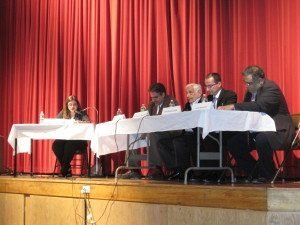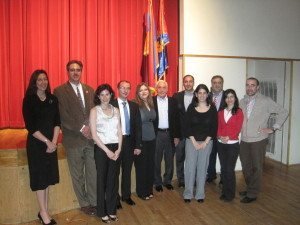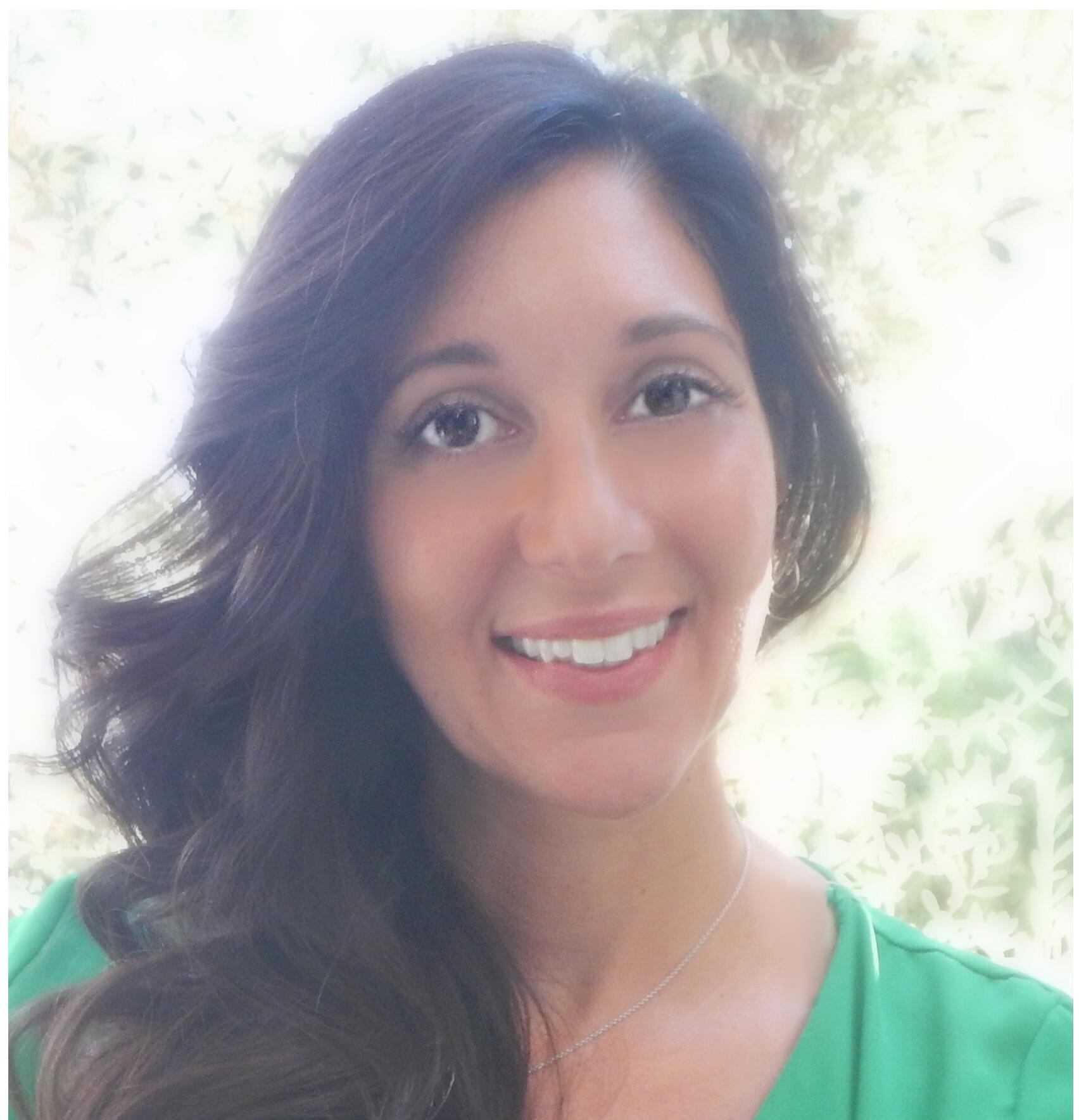On the evening of Thurs., May 12, the Armenian General Benevolent Union (AGBU) Young Professionals (YP) of Boston and the Armenian Revolutionary Federation (ARF) “Sardarabad” Gomideh collaborated to co-sponsor a symposium entitled, “Genocide Recognition: The Road Ahead.” Chris Mensoian of the AGBU YP Boston and Jirayr Beugekian of the ARF “Sardarabad” Gomideh served as event chairs.

Together the groups organized a panel of four distinguished Armenians: Aram Hamparian, the executive director of the Armenian National Committee of America (ANCA); Marc Mamigonian, the director of academic affairs of the National Association for Armenian Studies and Research (NAASR); Dr. Michael G. Mensoian, professor emeritus, Middle East and political geography, UMASS Boston; and Khatchig Mouradian, editor of the Armenian Weekly and a Ph.D. student in Holocaust and genocide studies, Clark University. Alin Gregorian, the editor of the Armenian Mirror-Spectator, served as moderator. Bryan Ardouny, executive director of the Armenian Assembly of America (AAA) was also scheduled to speak but was unable to attend.
At the beginning of the evening, YP Boston Chair Nicole Meregian gave opening remarks and introduced the participants. It was noted that State Representative Jonathan Hecht was in attendance and that the Boston Armenian community was pleased to have his support at this important event.
The panelists discussed and debated a wide range of topics within the realm of genocide recognition, including but not limited to reparations, the role of the diaspora in genocide recognition, the future security of Javakhk and Karabagh, and the importance of genocide education in U.S. academic institutions. Gregorian posed various questions to the panelists, and the audience was also able to write and submit their own questions, which Gregorian read during the last half hour. Speaking of the importance of the symposium, Chris Mensoian said, “Discussions like this are very important and necessary to engage and educate the community and avoid further apathy, which results in less participation in, and donations to, worthy Armenian organizations and causes. It’s a small victory—but a victory nonetheless—each time an event like this takes place and there is discussion and awareness of Armenian issues.”
Each speaker added something to the discussion from their own perspective, thereby engaging the audience on many levels. In the context of Turkey, Mouradian highlighted the importance of justice for the genocide, and noted that calls to be “realistic” in the quest for justice—and other attempts to reject demands for more than symbolic recognition—are often part and parcel of the structural violence against Armenians. He also emphasized the importance of genocide education in U.S. schools, so that children are taught the correct history from a young age. According to Mouradian, if genocide education is part of the curriculum, it will be increasingly difficult for the U.S. government to ignore historical facts.

Mensoian expressed his deep concern for the future of Javakhk and Karabagh, and said diasporan organizations must invest more into these lands so that we do not lose them. He noted that there is too much focus on genocide recognition and less energy and attention is invested in Karabagh and the strengthening of Armenia. Only a strong Armenia, he argued, would force Turkey to recognize the genocide and pay reparations.
Hamparian stressed the importance of a truthful and just resolution of the Armenian Genocide, autonomy for Javakhk, security for the independent Republic of Nagorno Karabakh, and a stronger Armenia. He outlined the ANCA’s efforts in advancing these aims, and invited the audience to become increasingly engaged in working with Armenian advocacy groups in realizing our community’s shared goals.
Mamigonian noted that genocide recognition is vital but emphasized the need also to increase funding for Armenian Genocide research. He pointed out that considerable efforts are being made to legitimize genocide denial through the creation of a pseudo-scholarly “contra-genocide narrative” and that the lack of official U.S. recognition only strengthens such efforts. Mamigonian also stated that U.S. recognition would have a positive impact on the creation of curricula and textbooks in American schools, and he underscored the point that it is a fallacy that Armenians in the diaspora must choose between supporting Armenia on one hand and working for genocide recognition and justice on the other. This argument, like that which states that diasporan Armenians have an “unhealthy obsession” with seeking justice for the genocide, is one advanced by Turkey and its supporters. Although genocide recognition is not the only priority for Armenian-Americans, he said, its pursuit is neither unhealthy nor unusual but entirely reasonable and necessary.
Stepanos Keshishian, the chairman of the Armenian Youth Federation (AYF) Great Boston “Nejdeh” Chapter, also shared his thoughts on the event. “Personally, I thought it was a great initiative to bring together Armenians of different sub-communities for a discussion. Although we may have differing political beliefs or ideologies, the important thing is that we all work for the health of our nation and for the wellbeing and comfort of all our brothers and sisters around the world,” he said. “We are an ancient and dispersed nation, and as such, we are unquestionably dynamic in our beliefs and approaches as a result of the various circumstances we’ve faced. But as long as we all agree on our right as a nation to exist and to thrive, and as long as we have the unrelenting dedication and passion to work for our collective cause, we will be successful. Success, however, isn’t an overnight and definitive accomplishment. As Aram [Hamparian] mentioned, it will come in small accomplishments aimed at ensuring justice. Dialogue aimed at achieving these successes is, in itself, a step in the right direction. That’s not to say that we should all give up our individual beliefs and adapt to a centralized ideology. The point is that we each, as individuals or as groups, have the ability to make accomplishments, and dialogue will certainly not hurt.”
AGBU YP Boston and the ARF “Sardarabad” Gomideh were pleased with the success of the event and look forward to promoting this type of collaboration and collegiality so that one day, Armenian Genocide recognition becomes a reality, not just a dream.



Dr. Michael Mensoian was trying very hard to explain is that pursuing Genocide Acknowledgment ONLY is hollow and meaningless. Genocide acknowledgment alone does not solve Armenia’s problems and does not resolve any difficulties the Armenian nation is facing (such as Javakh, Artzakh and building Armenia).
Mr. Aram Hamparian just did not seem to grasp Dr. Mensoian’s constructive guidance.
Aram Hamparian should understand that genocide acknowledgment without accountability is hollow and meaningless.
The goal is: Genocide Acknowledgment with Accountability: land, reparations and restitution.
I applaud the local ARF gomideh and the AGBU YP for this collaborative venture. When two organizations who operates in distinct segments of our greater community can work together and bring such important topics to the community, it gives us all hope. Perhaps the days of traditional alignments are ending and instead of view each other as competitors for community influence, we can look at one another as having unque value to add to the overall goal. Let’s continue to break down the walls. Our diversity is an asset if we have the will to subordinate our individual interests for the good of our national interests.
We’re so proud of you Khatchig and everyone who attended this symposium. Khatchig, I like what you proposed for the A.G. will be thought in American schools. I first heard it from my daughter that last year a teacher was speaking in class about the Haulocaust and then he shifted about all the Genocides and he also spoke about the Armenian Genocide a bit. I welcomed it and I think that’s a great idea. Just like you said, it’ll pave the road for the US’ government acceptance of the Armenian Genocide.